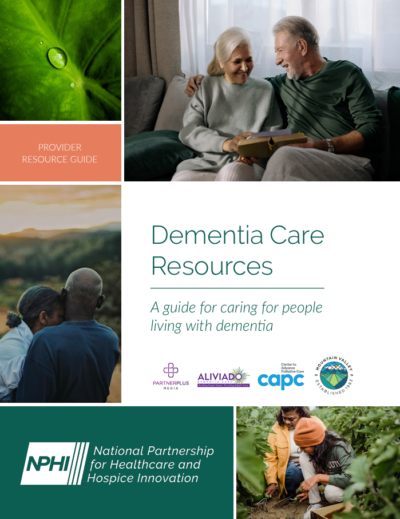Discovering the Right Charlotte Care Home: A Guide to Picking the most effective Environment
Discovering the Right Charlotte Care Home: A Guide to Picking the most effective Environment
Blog Article

Comprehending Mental Deterioration Care: A Guide for Loved Ones
The complexities of dementia treatment need a nuanced understanding that prolongs beyond standard understanding of the problem itself. For liked ones, acknowledging the very early signs and symptoms and executing effective interaction strategies are critical in promoting a supportive environment. Caregivers need to not overlook their very own health, as it significantly impacts their capability to supply thoughtful treatment. As we check out these necessary parts, it becomes evident that the trip of recognizing mental deterioration care is not almost the individual affected, yet additionally concerning the complex characteristics that form their connections and experiences. What insights can transform this trip?
What Is Dementia?
Mental deterioration is a collective term that incorporates a range of cognitive disabilities defined by a decline in memory, thinking, and social abilities serious sufficient to conflict with day-to-day life. It is not a specific disease but instead an umbrella term that includes numerous kinds of cognitive conditions, with Alzheimer's illness being the most prevalent. Other types include vascular mental deterioration, Lewy body dementia, and frontotemporal dementia, each with distinct qualities and underlying reasons.
The start of mental deterioration typically includes progressive cognitive decrease, influencing the person's capacity to carry out day-to-day tasks and involve meaningfully with others. These problems can show up as troubles with communication, analytical, and judgment. As dementia advances, people might experience adjustments in state of mind and habits, which can additionally complicate their treatment and social interactions.
Understanding mental deterioration is necessary for households, caretakers, and health care professionals to give appropriate assistance and interventions. Early medical diagnosis and treatment can help take care of signs and symptoms and enhance the lifestyle for those affected. Furthermore, it fosters a much deeper understanding of the challenges encountered by individuals with dementia, highlighting the significance of compassionate treatment and support throughout their trip.
Identifying the Symptoms
Recognizing the signs and symptoms of dementia early is important for effective intervention and assistance - dementia care charlotte. Dementia incorporates a series of cognitive impairments that can show up in various means, typically preventing daily performance and lifestyle. Typical very early signs and symptoms include memory loss, especially failing to remember current occasions or discussions, which may at first be rejected as regular aging
As the problem progresses, people may show troubles with analytical, planning, or completing familiar jobs, such as managing financial resources or complying with a recipe. Confusion concerning time or location usually arises, bring about disorientation and anxiety. Changes in mood and actions are additionally considerable indications; individuals may come to be taken out, cranky, or show lethargy towards tasks as soon as taken pleasure in.
It is crucial to come close to these monitorings with level of sensitivity and understanding, as they can be upsetting for both the individual and their liked ones. Motivate attention to these signs can lead to much better outcomes and assistance for those impacted by dementia.
Effective Interaction Techniques

Non-verbal signs play a crucial function in communication. Maintaining eye call, utilizing proper face expressions, and utilizing motions can assist convey your message much more properly. In addition, developing a distraction-free atmosphere can better promote purposeful interactions.
Energetic listening is essential; provide the person adequate time to respond without interrupting. Confirm their experiences and feelings, which cultivates trust fund and motivates open discussion. When talking about acquainted topics or memories, make use of motivates to direct the conversation, assisting them feel involved and valued.
Finally, be prepared to adapt your strategy based on the individual's current cognitive state. Adaptability in interaction methods makes sure that you continue to be connected, enhancing the importance of your partnership. By carrying out these approaches, you can create a supportive environment that encourages positive communications with people affected by dementia.
Creating a Supportive Environment
Producing a helpful environment is essential for enhancing the lifestyle for individuals with dementia. This environment should focus on familiarity, convenience, and security to decrease anxiety and complication. Begin by reducing potential dangers; remove stumbling obstacles, secure carpets, and make sure that lighting is enough. Plainly mark areas and locations with indicators or icons to help navigating.
Integrating regimens can supply a sense of stability. Predictable schedules aid individuals with dementia understand what to anticipate throughout the day, consequently reducing feelings of disorientation. Personalizing the home with familiar things, photographs, and tokens can evoke favorable memories and develop a feeling of belonging.
Furthermore, consider the sensory elements of the setting. Soft colors, soothing fragrances, and gentle audios can contribute to a relaxed atmosphere. Equilibrium stimulation to stay clear of frustrating the individual; silent locations for relaxation need to complement much more energetic rooms for social interaction.
Self-Care for Caregivers
Supporting people with look at more info mental deterioration requires not just a well-structured environment but additionally attention to the health of caregivers. Caretakers frequently face emotional, physical, and psychological difficulties that can bring about burnout if not appropriately resolved. Prioritizing self-care is vital to keep their health and wellness and performance in providing care.
First, caretakers should establish a normal regimen that consists of time for individual activities and relaxation. Participating in hobbies, exercise, or simply walking can substantially alleviate stress and anxiety. It is vital to preserve a balanced diet regimen and make certain appropriate rest to boost physical strength.
Additionally, caregivers should seek social assistance. This can be completed by joining support system, involving with good friends, or talking with relative regarding their sensations and experiences. Such connections assist caregivers feel much less separated and give useful emotional electrical outlets.
Finally, caregivers should not find out this here hesitate to seek expert help when required. Consulting psychological wellness professionals can help in establishing coping techniques and offer devices for managing the psychological toll of caregiving. By proactively practicing self-care, caregivers can enhance their health, inevitably benefiting both themselves and the individuals they look after.
Conclusion
In verdict, recognizing mental deterioration care is critical for boosting the lifestyle for individuals affected by this condition. Recognizing early signs, employing efficient interaction approaches, and promoting an encouraging environment are crucial elements of compassionate caregiving. In addition, prioritizing self-care for caretakers ensures their wellness, inevitably benefiting both caregivers and those obtaining care. By growing persistence and understanding, significant connections can be developed, assisting in an extra favorable experience for all associated with the caregiving journey.
As we explore these important elements, it becomes obvious that the journey of understanding mental deterioration care is not just regarding the individual impacted, however likewise regarding the complex dynamics that form their experiences and connections. Other kinds consist of vascular mental deterioration, Lewy body mental deterioration, and frontotemporal dementia, each with unique features and underlying reasons.
As mental deterioration advances, individuals may experience changes in state of mind and habits, which can even more complicate their care and social interactions.
In addition, it promotes a much deeper understanding of the challenges encountered by people with dementia, highlighting the importance of compassionate care and support throughout their trip.
In final thought, understanding mental deterioration care is essential for boosting the top quality of life for people affected useful reference by this problem. (charlotte care home)
Report this page